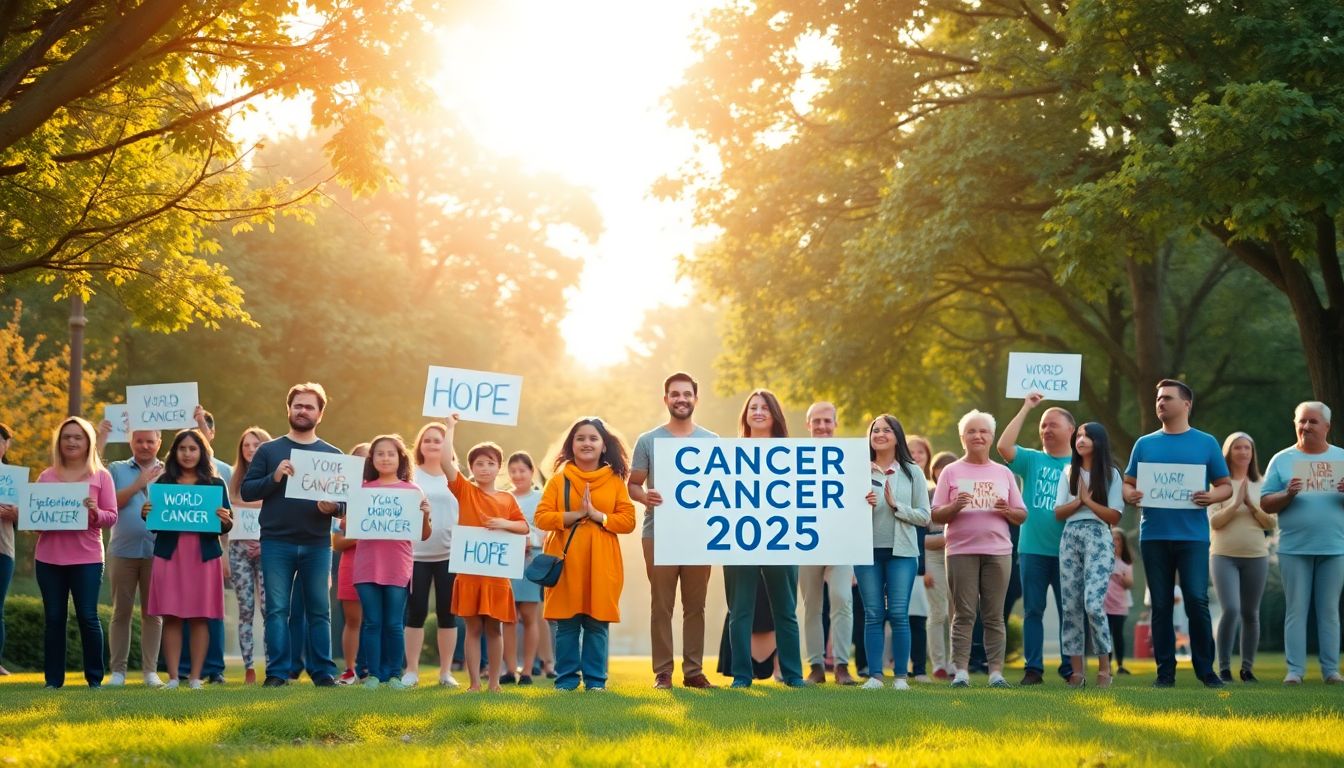
World Cancer Day 2025: Unite for Cancer Control
Cancer is a leading cause of death worldwide, claiming nearly 10 million lives in 2020 alone. This staggering figure represents the urgent need for action. Every year, February 4 marks World Cancer Day, a day dedicated to raising awareness about cancer prevention, detection, and treatment. The day serves as a reminder that global cooperation is essential in fighting this disease. In 2025, the focus will be on uniting for cancer control under a theme yet to be officially announced, emphasizing collective efforts in tackling the cancer crisis.
Understanding the Cancer Landscape in 2025
Global Cancer Statistics
As we approach 2025, cancer statistics show alarming trends. According to the World Health Organization (WHO) and the GLOBOCAN database, there were 19.3 million new cancer cases in 2020, and this number is expected to rise significantly. By 2025, it is estimated that there will be over 25 million new cases globally. Here are some key statistics:
- Incidence: An increasing number of diagnoses each year.
- Mortality: Approximately 1 in 6 deaths globally is due to cancer.
- Prevalence: There are millions of people currently living with cancer worldwide.
Emerging Cancer Trends
New studies reveal significant shifts in cancer types and survival rates. In recent years, the rise of obesity and sedentary lifestyles has led to an increase in obesity-related cancers, such as breast and colorectal cancer. Research indicates that early detection significantly improves survival rates, making awareness vital.
The Socioeconomic Impact of Cancer
The financial burden of cancer is staggering. Treatment costs can be overwhelming, often leading to financial distress for patients and families. For instance, countries with limited healthcare access, like parts of Africa and Asia, face higher mortality rates due to inadequate treatment options. In contrast, developed nations often have better access to early diagnosis and treatment.
Prevention: Lowering Your Cancer Risk
Lifestyle Choices
Making healthy choices can reduce cancer risk. Here are some proven strategies:
- Healthy Diet: Eating a balanced diet rich in fruits, vegetables, and whole grains.
- Regular Exercise: Engaging in physical activity for at least 150 minutes a week.
- Smoking Cessation: Quitting smoking drastically lowers the risk of various cancers.
You can find more information about healthy living on reputable health organization websites, like the American Cancer Society.
Early Detection and Screening
Regular screenings can save lives. Early detection helps in managing cancers more effectively. Here are common cancers where screening is crucial:
- Breast Cancer: Annual mammograms for women aged 40 and above.
- Colorectal Cancer: Screenings starting at age 45.
- Cervical Cancer: Pap tests recommended every 3 years for women aged 21-65.
Refer to national guidelines for more detailed screening recommendations.
Vaccination
Vaccines can help prevent certain cancers. The HPV vaccine significantly reduces the risk of cervical cancer, while the Hepatitis B vaccine helps prevent liver cancer. Awareness of these vaccines is essential in younger populations.
Advances in Cancer Treatment and Research
Breakthroughs in Cancer Therapies
Cancer treatment has evolved with groundbreaking advancements. Immunotherapy, which boosts the body’s immune response against cancer cells, has shown remarkable results. Targeted therapies focus on specific cancer mutations and have changed the treatment landscape. Significant research articles highlight these advancements, showing improved outcomes for patients.
Precision Oncology
Personalized medicine is becoming the norm in cancer care. Precision oncology tailors treatments to individual genetic profiles, leading to better efficacy and fewer side effects. Successful examples include targeted therapies for lung cancer based on genetic mutation testing.
Funding for Cancer Research
Investment in cancer research is vital. Continued funding ensures that researchers can discover new treatments and improve patient care. Awareness campaigns can help rally support for donations and grants.
Supporting Individuals and Families Affected by Cancer
Emotional and Psychological Support
Cancer affects not just the patient but their families too. Resources like support groups and counseling services are essential. Organizations like the Cancer Support Community provide valuable assistance and can be a lifeline for many.
Financial Assistance Programs
Cancer treatment can be financially draining. Programs like the Patient Advocate Foundation offer resources for financial aid. It’s important to research available assistance options.
Advocacy and Patient Empowerment
Patient advocacy groups play a crucial role in improving cancer care. Empowering patients to voice their needs ensures more inclusive treatment decisions. Engaging with advocacy organizations can lead to collective changes in healthcare.
Taking Action: Your Role in the Fight Against Cancer
Individual Actions
Everyone can contribute. Adopt a healthy lifestyle, spread awareness about cancer screenings, and encourage friends and family to participate in healthy living.
Community Involvement
Join local fundraising events or volunteer with organizations supporting cancer research. Community efforts can have a powerful impact on awareness and funding.
Policy and Advocacy
Advocate for policies that promote cancer prevention and access to care. Engaging with local lawmakers can make a difference in how healthcare is prioritized.
Conclusion
As we approach World Cancer Day 2025, reflecting on the information shared can inspire action. With rising statistics and advancements in treatment, there is hope. Join the fight against cancer by participating in initiatives, spreading awareness, and supporting research. Together, we can create a world where cancer is no longer a leading cause of death.